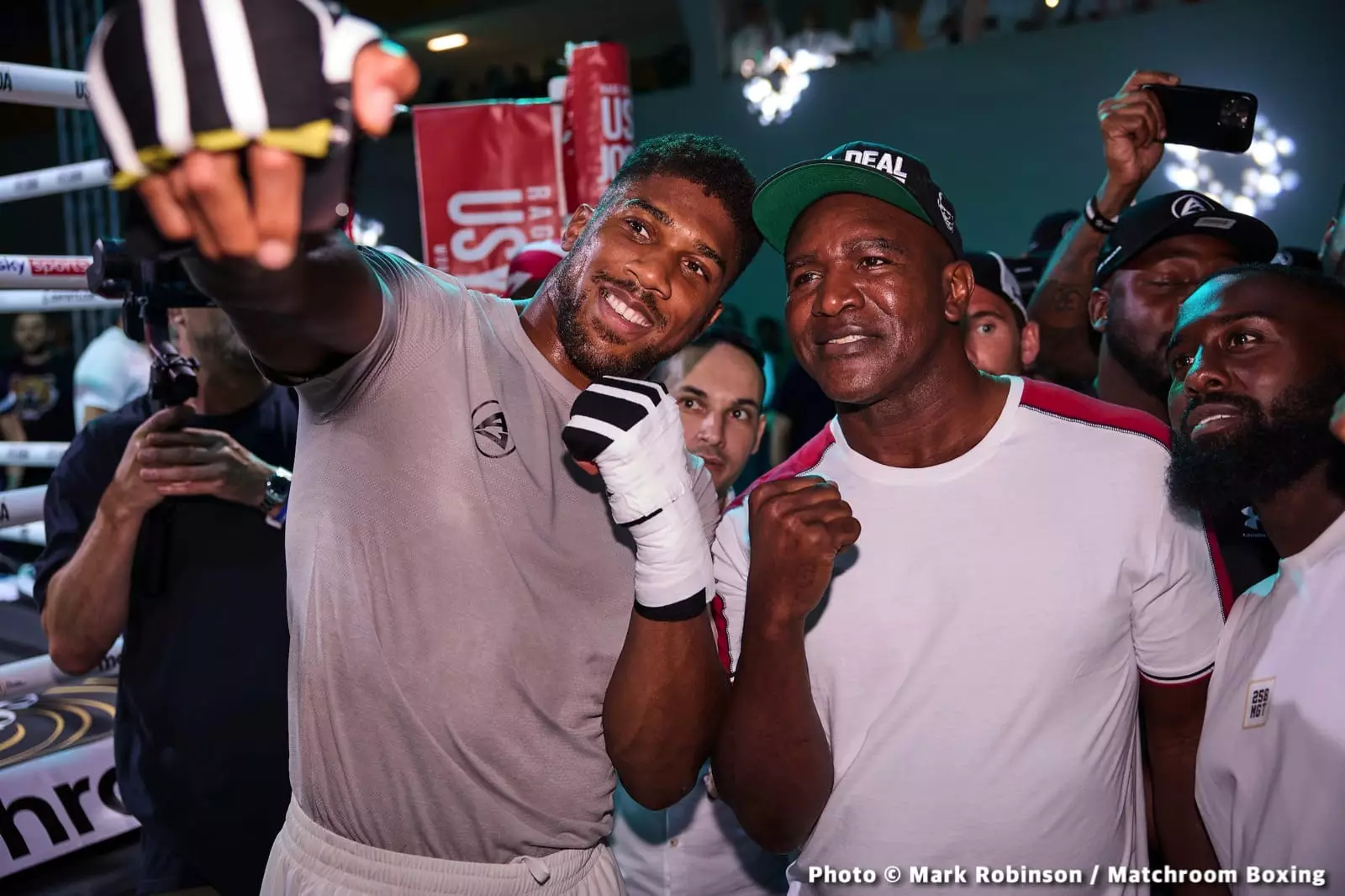Evander Holyfield, known as “The Real Deal,” remains a monumental figure in the annals of boxing history, particularly in the heavyweight division. His recent remarks during an interview with Radio Rahim at the Ring Magazine Awards in London underscore his belief that he deserves recognition as the greatest heavyweight champion of all time, surpassing even the legendary Muhammad Ali. This notion not only rekindles the debate over greatness in boxing but also shines a light on the elusive criteria that define such an accolade.
The Case for Holyfield’s Legacy
From 1990 to 2000, Holyfield held the heavyweight championship four times, a feat that has never been duplicated. His assertion that he is the only four-time heavyweight champion is accurate; yet, this raises fundamental questions about the criteria for greatness in boxing. Holyfield’s championship reigns included titles from the WBA and IBF, with his first stint being particularly noteworthy as he achieved undisputed champion status. While he believes this achievement should place him at the pinnacle of the heavyweight hierarchy, it neglects key aspects of what constitutes a fighter’s legacy.
Holyfield’s contention arises from a deeply rooted frustration regarding the recognition from the media and fans alike. He expressed his discontent with being overshadowed by Ali, emphasizing that breaking records should inherently elevate one’s status. “I’m the only four-time heavyweight champion of the world, but they’re still talking about Ali when I broke his record,” he stated. Indeed, his accomplishments are remarkable; Holyfield faced and defeated significant opponents such as Riddick Bowe, George Foreman, and Buster Douglas. Yet, while the quantity of titles is an essential factor, it is only one dimension of assessing greatness in boxing.
One fundamental aspect to dissect when evaluating fighters is their level of competition—the quality of the opponents they faced and the conditions under which they achieved victories. Holyfield’s opponents were undeniably formidable, a collection of iconic names that gravitated towards the top-tier of boxing history. However, Muhammad Ali’s legacy is often bolstered by his victories over contemporaries widely regarded as some of the best in heavyweight history, such as Joe Frazier, George Foreman, and Sonny Liston.
Moreover, during Ali’s era, the boxing landscape permitted only one recognized heavyweight champion, which provided fans the opportunity to witness exclusive bouts for the title. In contrast, Holyfield’s career featured multiple champions, with belts scattered among WBA, IBF, WBC, and WBO titleholders, a reality that introduced complexities into the championship narrative. While Holyfield’s ability to capture these various titles is commendable, it also raises questions about whether holding multiple championships in a fragmented environment diminishes the significance of his accomplishments.
It’s crucial to consider whether winning titles alone constitutes greatness. The boxing world has seen numerous champions accrue belts without having faced the best competition available. Holyfield’s path to the top has sparked debates that echo through boxing history—the debate between quantity of achieved accolades and the quality of fighters defeated during their careers. Analyzing records of champions like Floyd Mayweather or Canelo Alvarez, who have accumulated staggering numbers of titles yet may not match the historical prestige associated with champions from previous eras, further complicates the discussion.
What we can discern from Holyfield’s passionate defense of his legacy is the dynamic interplay between titles and the ethos of a fighter. It highlights the importance of context and legacy as much as the numerical achievements. Holyfield’s animated observations about his standing reflect the continual evolution of how we interpret greatness in boxing.
In sum, Evander Holyfield’s argument for his status as the greatest heavyweight champion is steeped in both undeniable facts and complex variables. While his title accumulation certainly deserves respect, the legacy of a fighter is ultimately defined not just by quantity but by quality and impact. Holyfield’s case may open new dialogues about recognition in combat sports, reigniting discussions about the legends who shaped the landscape of boxing. The honor and pride he feels illustrate the heart of what it means to be a fighter: the insatiable desire for recognition and the relentless pursuit of greatness. While he may not yet be deemed the GOAT, his contribution to heavyweight history is invaluable, fundamentally shaping how greatness is perceived in the sport.

